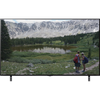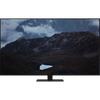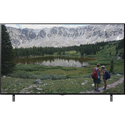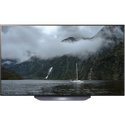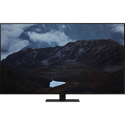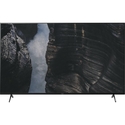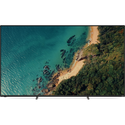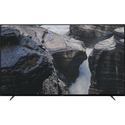A comparison of specs, key information, reviews, and best pricing from top retailers
Last updated -- hours ago | Report incorrect information
What we think

The PerfectRec TV team Learn more
Updated January 10, 2024·
The LG NANO90 may be less expensive, but the Samsung Q80B offers better performance in a variety of viewing conditions. The LG TV may not provide the same level of picture quality and brightness as the Samsung in well-lit rooms. If you prioritize a richer watching experience and do not mind spending more, consider the Samsung Q80B. However, if you're looking to save money and still want a TV that can handle most content satisfactorily, the LG NANO90 could be an adequate choice. Give Feedback
this description is based on the product variant with some specs and product variant with some specs. At the time of writing, the variant with some specs cost some dollars and the variant with some specs cost some dollars.
Advantages of the LG NANO90 (LCD)
- Very good reflections
Advantages of the Samsung Q80B (LCD)
- Good for bright room
- Good for news, talk, & other TV
- Good for cartoons & animation
- Very good motion processing
- Good viewing angle
Key differences
Picture Quality
6.1
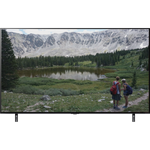
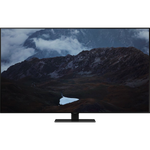
7.1
5.28/10
CONTRAST
5.33/10
6.6/10
COLOR VOLUME SCORE
7.5/10
LED FALD
PANEL TYPE
LED FALD
IPS
PANEL SUB-TYPE
IPS
The Samsung Q80B (LCD) has good picture quality, while the LG NANO90 (LCD) has only fair picture quality.
Movies & TV
5.6


6.4
5.28/10
CONTRAST
5.33/10
5.3/10
BLACK UNIFORMITY
5.2/10
7.5/10
UPSCALING
7.5/10
Yes
HDR10 SUPPORT
Yes
No
HDR10+ SUPPORT
Yes
Yes
DOLBY VISION SUPPORT
No
The Samsung Q80B (LCD) is only fair for movies & TV, while the LG NANO90 (LCD) is poor.
The LG NANO90 underperforms for movies due to lower contrast and poorer black uniformity, which leads to less impressive dark scene depiction, and its local dimming feature doesn't enhance black levels effectively. In contrast, the Samsung Q80B offers better contrast and local dimming, resulting in superior black depth and detail in dark scenes, and it also has a better viewing angle, making it more suitable for wider seating arrangements.
Cartoons & Animation
5.6


7.6
6.5/10
COLOR GAMUT SCORE
7.3/10
6.6/10
COLOR VOLUME SCORE
7.5/10
7.8/10
SDR BRIGHTNESS SCORE
8.8/10
4.3/10
COLORS OUT OF THE BOX SCORE
7.8/10
5.9/10
GRAY UNIFORMITY
6.4/10
The Samsung Q80B (LCD) is good for cartoons & animation, while the LG NANO90 (LCD) is poor.
The LG NANO90 displays cartoons and animation poorly because it has poor colors out of the box and only a fair color gamut, which affects its ability to show a wide and accurate range of colors. In contrast, the Samsung Q80B performs well for cartoons and animation since it offers good colors out of the box and a good color gamut, ensuring a brighter and more vibrant color display.
News, Talk, & Other TV
6.4


7.8
7.8/10
SDR BRIGHTNESS SCORE
8.8/10
7.5/10
UPSCALING
7.5/10
The Samsung Q80B (LCD) is good for news, talk, & other TV, while the LG NANO90 (LCD) is only fair.
The Samsung Q80B outperforms the LG NANO90 in areas like SDR brightness, making it a better choice for bright rooms while also offering better colors right out of the box, which enhances the viewing experience for news and talk shows without the need for additional calibration. Although both have good upscaling abilities, the superior contrast and color performance of the Samsung Q80B provides a more vivid and clearer picture, especially in well-lit conditions.
Cost
$1,719


$998
$500
$1,000
$1,500
$2,000
$2,500
$3,000
The LG NANO90 (LCD) has a price of $1,719 and the Samsung Q80B (LCD) costs $998.
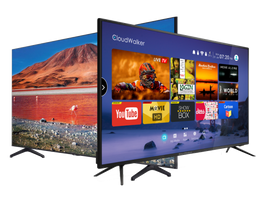
Let Us Help Find Your Perfect TV
Find your new TV
Key similarities
Sports
6.8


6.8
7.5/10
MOTION PROCESSING
8.0/10
120Hz
REFRESH RATE
120Hz
8.7/10
INPUT LAG SCORE
10.0/10
7.5/10
UPSCALING
7.5/10
7.8/10
SDR BRIGHTNESS SCORE
8.8/10
Yes
HLG SUPPORT
Yes
The Samsung Q80B (LCD) and LG NANO90 (LCD) are both only fair for sports.
The LG NANO90 and Samsung Q80B both have fair performance while watching sports, with LG NANO90 offering slightly higher viewing angles and better reflection handling, which may be more forgiving in various room settings. However, the Samsung Q80B excels with better motion processing capabilities, which is crucial for fast-paced sports but has slight limitations with reflections and viewing from an angle.
Gaming
8.0


8.2
7.6/10
RESPONSE TIME SCORE
8.1/10
8.7/10
INPUT LAG SCORE
10.0/10
7.5/10
MOTION PROCESSING
8.0/10
50.0/100
GAMING LOCAL DIMMING
60.0/100
7.6/10
GAME HDR BRIGHTNESS SCORE
8.0/10
The Samsung Q80B (LCD) and LG NANO90 (LCD) are both very good for gaming.
The LG NANO90 offers a very good response time and input lag for gaming, providing a smooth visual experience with minimal delay between input and action on screen. The Samsung Q80B, on the other hand, delivers an even better response time and the best input lag, ensuring almost instantaneous reactions to gamer commands, essential for competitive gameplay.
Bright Room
6.9


7.4
6.3/10
VIEWING ANGLE
7.4/10
7.8/10
SDR BRIGHTNESS SCORE
8.8/10
7.2/10
HDR BRIGHTNESS SCORE
7.7/10
8.0/10
REFLECTIONS SCORE
6.0/10
Although they have very similar scores, PerfectRec considers Samsung Q80B (LCD) to be good for bright room, while the LG NANO90 (LCD) is only fair.
The Samsung Q80B provides a better viewing experience in bright rooms primarily due to its superior SDR brightness and better handling of reflections when compared to the LG NANO90, which exhibits lower brightness capabilities and fair reflection handling. Additionally, the Samsung's color volume and gamut are rated higher, contributing to more vibrant and fuller colors even under various lighting conditions.
Give feedback
We’re constantly working to improve.
How the LG NANO90 (LCD) and the Samsung Q80B (LCD) compare to other TVs
Spec Comparison
| LG NANO90 (LCD) | Samsung Q80B (LCD) |
GENERAL | |||
|---|---|---|---|
| Price | |||
$1,719 | $998 | ||
Brand | |||
Brand | LG | Samsung | |
Release Date | |||
Release Date | March 2, 2021 | April 3, 2022 | |
Full name | |||
Full name | 65NANO90 | QN65Q80B | |
Screen Size | |||
Screen Size | 65" | 65" | |
Screen Resolution | |||
Screen Resolution | 4K | 4K | |
TV FEATURES | |||
|---|---|---|---|
Operating System | |||
Operating System | webOS | Tizen | |
Sound Quality Score | |||
Sound Quality Score | 6.4/10 | 8.6/10 | |
NextGen Ready | |||
NextGen Ready | No | No | |
HDMI Ports | |||
HDMI Ports | 4 | 4 | |
Coax Ports | |||
Coax Ports | 1 | 1 | |
DISPLAY QUALITY SCORES | |||
|---|---|---|---|
Picture Quality Score | |||
Picture Quality Score | 6.1/10 | 7.1/10 | |
Bright Room Score | |||
Bright Room Score | 7/10 | 7.5/10 | |
Gaming Score | |||
Gaming Score | 8/10 | 8.3/10 | |
Movies & TV Score | |||
Movies & TV Score | 5.6/10 | 6.5/10 | |
Sports Score | |||
Sports Score | 6.8/10 | 6.9/10 | |
PHYSICAL | |||
|---|---|---|---|
Dimensions w/o Stand (H x W x D) | |||
Dimensions w/o Stand (H x W x D) | 33" x 57.2" x 1.8" | 32.7" x 56.9" x 2.2" | |
Dimensions with Stand (H x W) | |||
Dimensions with Stand (H x W) | 35.6" x 57.2" | 35.7" x 56.9" | |
Weight without Stand | |||
Weight without Stand | 62.2 lbs | 53.1 lbs | |
VESA Mount | |||
VESA Mount | 400 x 400 | 400 x 300 | |
DISPLAY | |||
|---|---|---|---|
Color Depth | |||
Color Depth | 10 bit | 10 bit | |
Black Frame Insertion | |||
Black Frame Insertion | Yes | Yes | |
Auto Low Latency Mode | |||
Auto Low Latency Mode | Yes | Yes | |
Contrast | |||
Contrast | 5.3/10 | 5.3/10 | |
Local Dimming | |||
Local Dimming | 5.2/10 | 5.7/10 | |
SOUND | |||
|---|---|---|---|
Speaker Setup | |||
Speaker Setup | 2.2 | 2.2.2 | |
Speaker Power | |||
Speaker Power | 40 W | 60 W | |
Dolby Atmos | |||
Dolby Atmos | Yes | Bypass only | |
DTS:X | |||
DTS:X | No | No | |
Shopping
LG NANO90 (LCD)
See more
Dig into reviews and images
Techradar
John Archer | July 2021
"Here we have HDR pictures that look bright, but also manage to typically hit decently deep black levels.WebOS continues, though, to be one of the easiest to use. Connections are strong for a mid-range TV. Native 4K pictures look crisp and detailed."
Samsung Q80B (LCD)
See more
Dig into reviews and images
Tom's guide
Matthew Murray | February 2023
"For most people its picture, sound, and price make it a midrange TV worth considering. HDR brightness was generally exceptional. Its viewing angles are shockingly good, among the very best we’ve seen recently from any non-OLED TV. For gamers input lag isn’t too shabby."
Get a great deal on the LG NANO90 (LCD) or the Samsung Q80B (LCD)
About LG
LG, a prominent TV brand from Korea, has played a significant role in popularizing OLED TVs. OLED technology is hailed as the future of TV technology. Their TVs employ WebOS, a proprietary smart TV software that not only offers seamless functionality but also includes gaming-specific features, earning praise from players worldwide. Often regarded as the gateway to unparalleled viewing experiences, LG's mid-range OLEDs come highly recommended, making them a worthwhile investment for those willing to stretch their budget for superior quality.
About Samsung
Samsung, a South Korean electronics manufacturer, holds the title of being the largest global TV vendor in terms of units sold. They offer a diverse lineup of TV products that cater to various budget ranges. A notable achievement in recent years is the development of Quantum Dots, a technology that enhances color reproduction, resulting in richer and more vibrant hues. Samsung TVs are well-regarded for their high manufacturing quality and user-friendly software, making them an excellent choice for consumers seeking an intuitive viewing experience.
Give feedback
We're constantly perfecting our model
TV guides you might be interested in
More comparisons for you
FAQs
FAQs about TVs
Why trust us
This information was produced and vetted by the PerfectRec TVs team. We are a product research and recommendation organization that meticulously reviews and evaluates the latest TV information and makes it digestible for you.
By the numbers
385
TVs evaluated
33,110
TVs stats compiled
21
Proprietary TVs ratings developed
161,430
Recommendations made
24,215
Consumer hours saved
About the TV team
Joe Golden, Ph.D
CEO and TVs Editor
Joe is an entrepreneur and lifelong electronics enthusiast with a Ph.D in Economics from the University of Michigan.
Jason Lew
Staff Expert & Software Engineer
Jason is a staff expert and software engineer that has been making laptop recommendations for 7 years and moderates one of the largest laptop subreddits.
Chandradeep Chowdhury
Staff Expert & Software Engineer
Chandradeep is a staff expert and software engineer and expert in televisions and monitors. He’s been making monitor recommendations for ten years.
Jaime Roldán
TVs Expert
Jaime is a Colombia-based TV expert. He is an electronics engineer with 8 years of experience in the telecom sector and has been making TV recommendations for 12 years.
